An Interview with Lou Anders
What books would you recommend to a hardcore fantasy reader interested in branching out into sci-fi, and vice versa? What about a mainstream reader trying sci-fi for the first time?
Whenever recommending books, I start by asking people what they already read, and if that doesn’t work, what kind of films they respond to. I think the field is so, so diverse that it is very hard to take a one-size-fits-all approach to any reader. I do think authors like John Scalzi and Kristine Kathryn Rusch do a wonderful job of writing “entry level” SF without sacrificing the depth of potential SF iconography. I point readers of “literature with an L” at the science fiction of William Gibson and Ian McDonald, who are among our finest working authors. Charles Stross is a good representation of the current state of the field.
Whenever I am asked why SF hasn’t had it’s Harry Potter, I reply that it has and that Orson Scott Card’s Ender’s Game is still selling like hotcakes. Frank Herbert’s Dune seems to be cited almost as often by people who don’t read much SF but love that series (the way that you meet a lot of folks who love Tolkien but haven’t branched further into fantasy). I always point Dune fans at John Meaney’s Nulapeiron Sequence of Paradox, Context, and Resolution. That series is also a very good example of sophisticated, hard SF filtered through a touch of sword and planet.
For an introduction to fantasy, Neal Gaiman has near universal appeal. I think that SF readers might like the fantasy-world-come-to-grips-with-technology aspect of Adrian Tchaikovsky’s work or the way Kay Kenyon’s The Entire and the Rose series uses Clarke’s Law to give us a science fiction universe that reads like epic fantasy. Any fan of Fritz Leiber should read Scott Lynch and James Enge. I’ll also give a shout out to Greg Keyes’ The Briar King, which is absolutely brilliant.
You’ve edited some critically-acclaimed sci-fi anthologies. (Plus you have fantasy and superhero anthologies forthcoming.) Could you talk a little bit about that particular editorial process? How is editing an anthology different from editing a novel? For you, what makes a good anthology?
Editing an anthology is like editing a mix tape, which is a lost art in the age of iTunes and Shuffle Play and you can’t really understand unless you have made a mix with LPs and cassettes. But it is all about juxtaposition, the rise and fall of tone, the way one story (or song) ends and leaves an image or association or tone hanging in your mind that blends through the silence into the beginning of the next offering. For me, as a reader, a good anthology is any one where I like over 50% of the stories. The whole point of an anthology should be the opportunity of discovery it affords, the ability to take risks beyond your usual reading habits, to try out at the short form something you might not risk investing in for a whole novel. The reader shouldn’t like every single story in the book, or they haven’t been stretched. But they should like most, and of course, the goal is for them to like as near to all as possible.
Now, as an anthologist, I tend to shy away from reprint anthologies and anthologies grouped around a single subject (like “time travel” or “cats”). These have their place for the reader, but for me, I want each anthology to ask a question of the field, to examine a trend, tackle a problematic aspect, provide a direction. More so than any other genre, speculative fiction is in an ongoing dialogue with itself, and I feel that anthologies of all original material, that examine or question an aspect of the field, have a chance to be a voice in that dialogue.
My first professional anthology, Live without a Net, grew out of what I perceived at the time as my frustration with American SF clinging to post-cyberpunk while the UK was indulging themselves in the exuberance of the “New Space Opera.” I wanted to get rid of cyberpunk and shake out some sensawunder. FutureShocks was an examination of the border between SF and horror, which I felt seemed better actualized in film (Alien) than in print. And, in fact, that anthology ended up with more satire and comedy than I intended, which at least taught me something about the place of horror in contemporary SF.
Swords & Dark Magic (co-edited with Jonathan Strahan) is our attempt to examine, and if it isn’t hubris to say so, even help foster this aforementioned resurgence of S&S and S&S-informed fantasy.

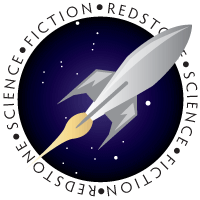
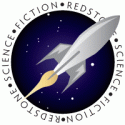



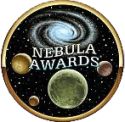
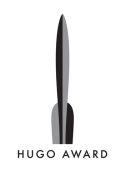
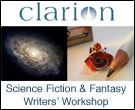


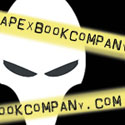
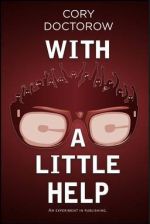
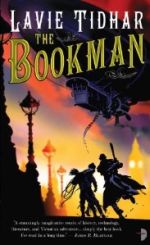
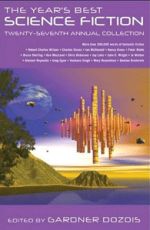


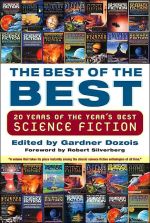
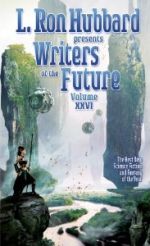

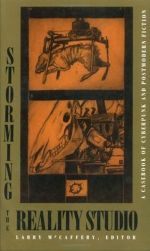



16 comments
[…] http://redstonesciencefiction.com/2010/05/interview-lou-anders/3/ Posted by Blue Tyson 5.0, study, t non-fiction, z free sf Subscribe to RSS feed […]
[…] This post was mentioned on Twitter by SF Signal (John D.) and Aidan Moher, Niki Bruce. Niki Bruce said: RT @sfsignal: Redstone Science Fiction interviews Lou Anders of @Pyr_Books. http://bit.ly/bFMMPc #fb […]
[…] Read More here […]
[…] Anders, editorial director for Pyr, Prometheus Books’ sci-fi/fantasy imprint, also serves as art director when it comes to the boo… who also, to my delight, rightfully proclaims Ender’s Game to be the Harry Potter of science […]
[…] Redstone Science Fiction interviews Lou Anders of […]
Hurray! Based on Pohl’s definition, I have indeed written a science fiction novel! Just hope everyone likes it! Awesome interview! Nice to hear someone talking without the typical sci-fi nerd condescending tone that is so typical on so many blogs/forums/sites.
[…] Redstone Science Fiction interviews Lou Anders of […]
Thanks for the really terrific interview. Interesting to hear Lou talk about the trends, but very discouraging for the SF reader, but I’m sure “regular” SF will very go away entirely and eBooks will allow many books with smaller audiences to thrive.
[…] June 7th, 2010 § 0 In case you missed it, I conducted an interview with Lou Anders. The interview appeared in the most excellent first issue of Redstone Science Fiction. Below is an excerpt. You can read the entire interview here. […]
What great questions for a leading publisher in the industry. This is really interesting insight for me as an SF/F reader. Thanks!
[…] Hardy, an engineer who works with scientific research on the International Space Station, and one with Yours Truly (conducted by author David Alastair Hayden). Check it out and give them your love. […]
[…] interviews would reinforce the fiction. Instead, io9 and several other sites picked up the kick-ass interview with Lou Anders done by our friend David Alastair Hayden and traffic went through the roof. As that excitement […]
[…] Personally, however, I feel SFR is a completely different kettle of fish because of those two letters … “SF”. Because I incorporate science-fiction in my books, I feel compelled to include some deeper insight into the human condition. To me, that’s what it means to write sf or anything sf-related. Lou Anders, quoting Frederik Pohl, said it best in his recent interview at Redstone: […]
[…] Lou Anders, Editorial Director of Prometheus Books’ science fiction and fantasy imprint Pyr with David […]
[…] again, in a Redstone Science Fiction June 1, 2010 interview: “Swords & Dark Magic (co-edited with Jonathan Strahan) is our attempt to examine, and if […]
[…] in a June 1, 2010 interview at The Mad Hatter’s Bookshelf & Book Review. Lou again, in a Redstone Science Fiction June 1, 2010 interview: “Swords & Dark Magic (co-edited with Jonathan Strahan) is our attempt to examine, and if it […]